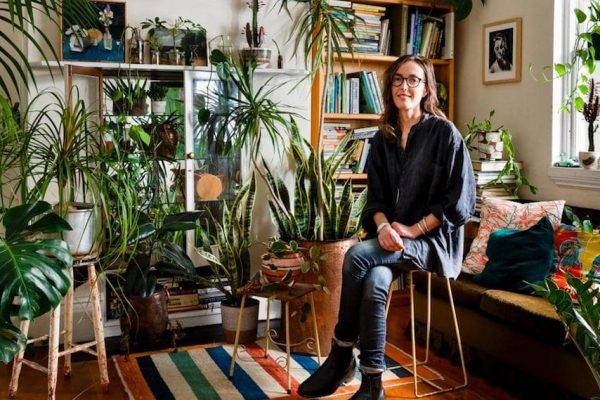One of life’s most delightful little luxuries can be found in that precise moment after a warm shower, when you wrap yourself in a fresh bath towel. If you’re Danish, you might call it ‘hygge.’
There’s a certain comfort that comes with the fluffiness of a high quality towel. One that only softens with age and care. Where each loop in the fabric is handwoven by masters of the skill.
But what many people don’t realise is what goes into this truly handcrafted experience and how the art of the handwoven Turkish towel is in jeopardy.
For Sandra Huckell, founder of Aegean Loom, she has made it her life’s mission to preserve this craft and to keep our little moment of bathroom luxury alive.
Aegean Loom brings handwoven Turkish towels made from 100% organic cotton right to your home.
From soft bath towels, beach towels, silk shawls, cushions and the versatile and iconic peshtemal, you can bring a little touch of Turkey, and Turkish craftsmanship, into your home.
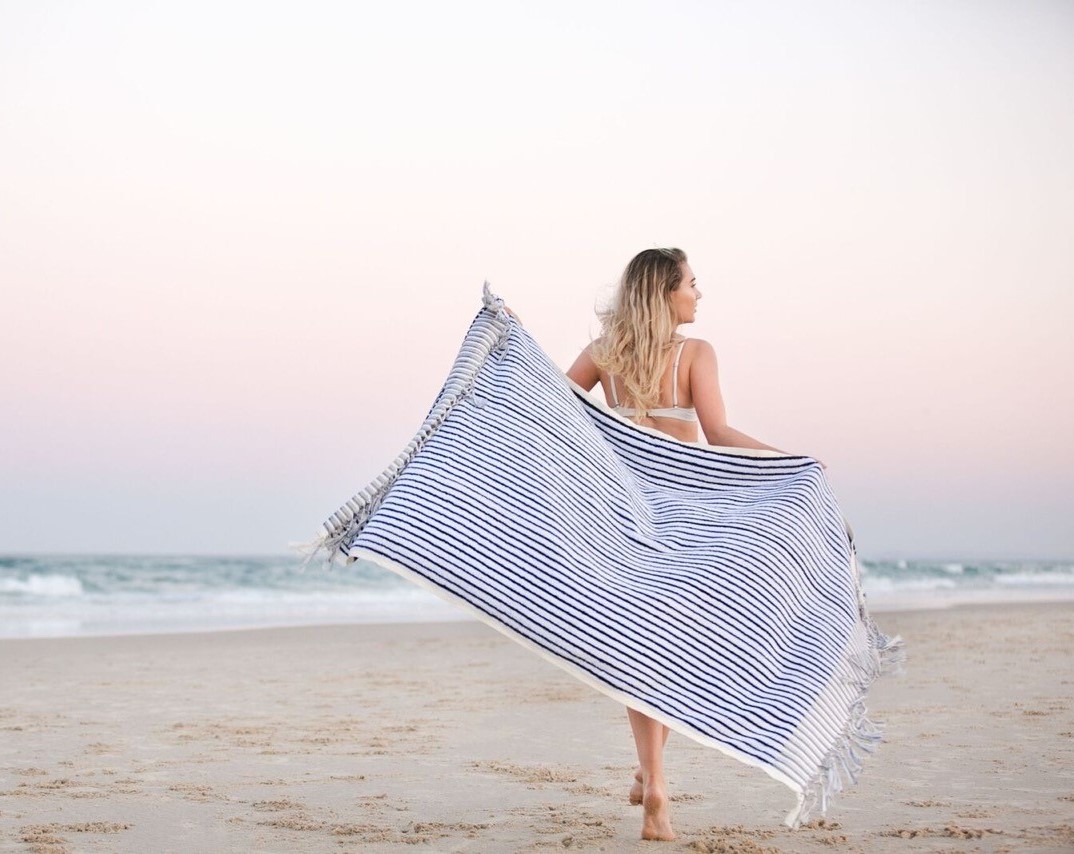
“I not only fell in love with the towels but I wanted to help keep the art of weaving alive.”
A Turkish Attraction
Sailing across the deep blue waters of the Aegean Sea is an experience to marvel over. Dotted with sun blessed islands and brushing the stunning Turkish coast, it’s no wonder this region of the world has become one of our most beloved travel destinations. Head inland to Turkey and you’ll be greeted by stunning mountains, crumbling ancient cities, and food that will make your taste buds melt.
Sandra first travelled to Turkey 35 years ago and it was love at first sight. The people, food, culture, and most importantly, the surprise she would find when she stepped foot into an unassuming little shop selling handwoven towels. She was instantly drawn to the stunning craftsmanship of these towels. Upon further conversations with the local weavers, she discovered much of the industry had been taken over by large textile factories.
Reflecting on that experience, Sandra remarks, “I not only fell in love with the towels but I wanted to help keep the art of weaving alive.”
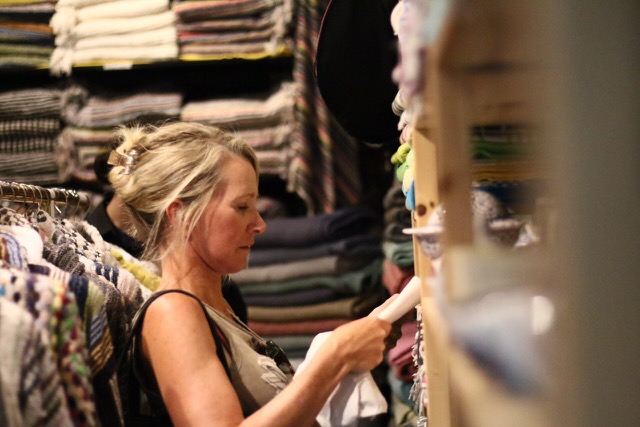
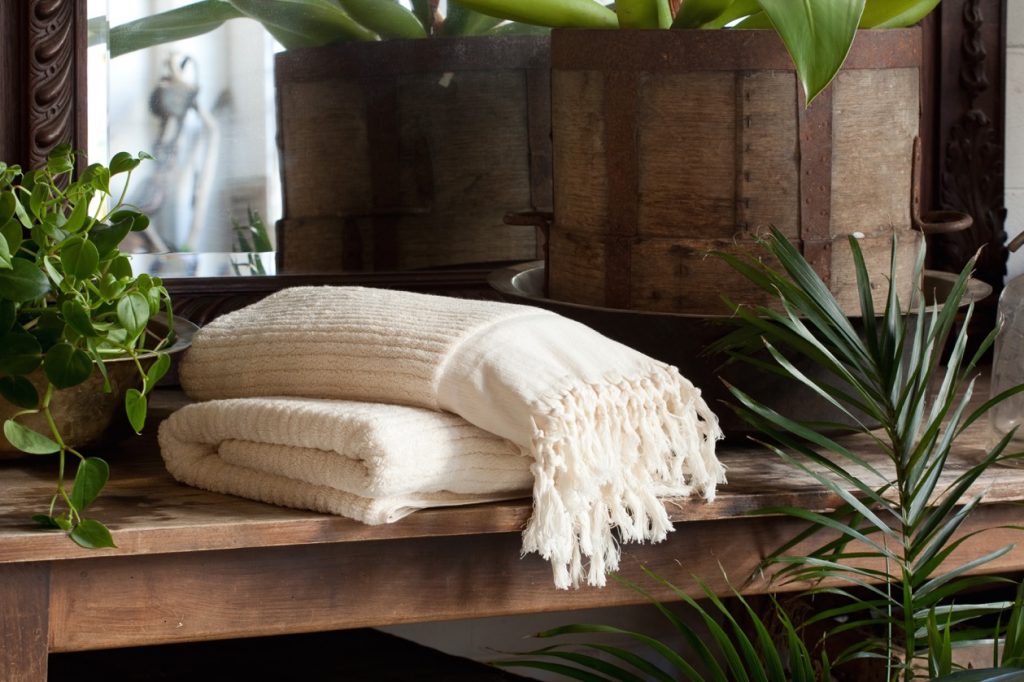
The Art of Weaving
If a finer taste for life’s little luxuries ever did lead to a better thing, then the story of how the looped towel came about can attest to this.
Dating back to the 17th century, the women in the Sultan’s Palace were demanding something more plush than the standard cotton towel known as a Peshtemal. These were the standard for towels at the time; a thin string of cotton which served its purposes of versatility and practicality. But it was far from the desired level of opulence these women of wealth wanted to experience.
Sandra goes on to explain, “It was the palace weavers that mastered the plush looped technique. The weavers had discovered that buy using a second warp thread and pulling it above the flat surface of the towel, a loop could be created which was then locked into place.”
So next time you dry yourself off with a luxurious Turkish towel, take a moment to thank the ingenuity of these Turkish weavers.
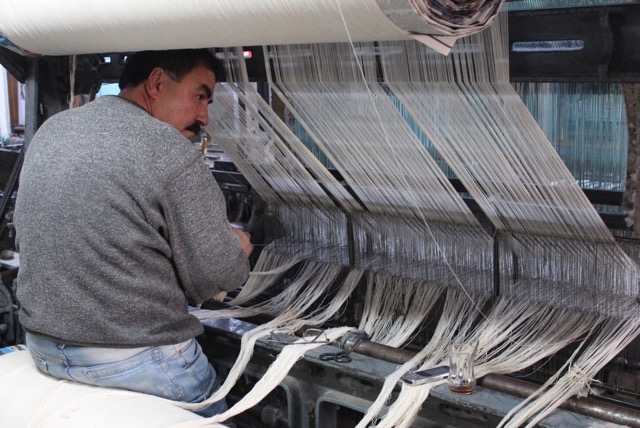
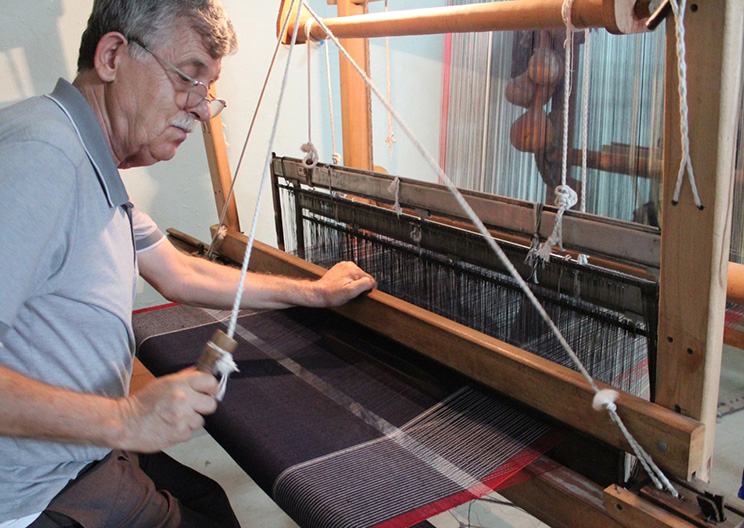
Unique Craftsmanship
This story is not one without a crushing, present day reality. Like many traditional skills, it’s a dying art.
Sandra explains, “Like so many wonderful skills, if we don’t nurture the art of weaving, it will be lost forever. There are only 2 remaining families left that we know of in Turkey with the looms to enable them to do this hand-weaving technique. It’s such a symbolic part of Turkish heritage and culture.”
These weavers are competing in an industry where towels are factory mass produced in China and shipped all around the world. We all know what it feels like to own one of these. With each wash they grow coarser and by the end of the first year, you’re drying yourself with something that resembles a cross between sandpaper and cardboard. It’s the sign of unsustainable poor quality. Mass produced. A short lifespan. Chemically treated. Cheap. Totally uninspiring.
“Most us of have no concept about what has been lost in terms of product quality and durability. It’s a challenge when you see mass produced towels selling for $10.00.”
In contrast, the towels from Aegean Loom are made in small batches, by the hands of artisans who maintain the skills of their forefathers.
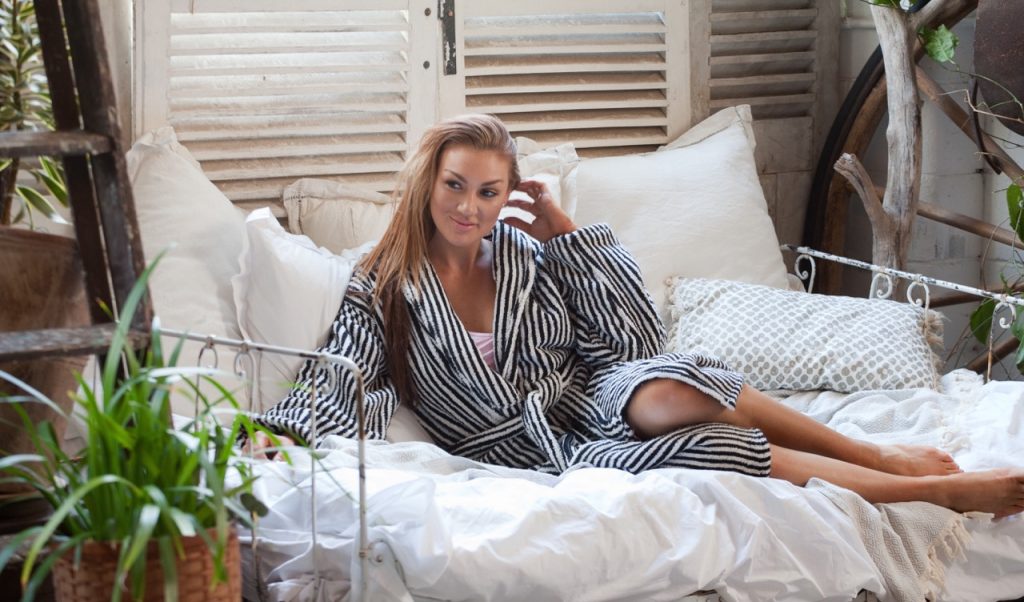
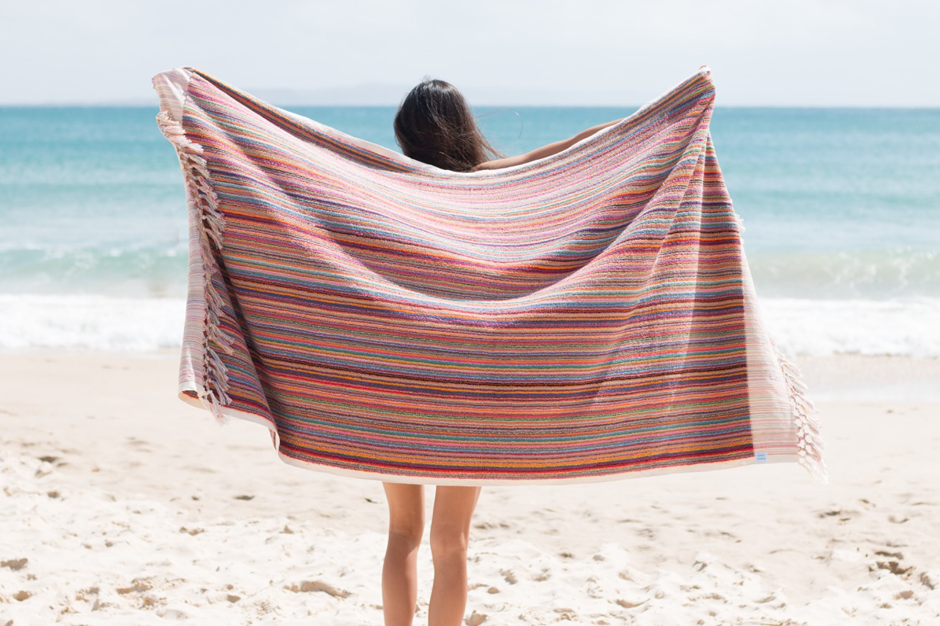
The (Humbling) Brighter Side
Every time Sandra sees one of her towels, she’s reminded why exactly she’s doing this.
“My tough days are nothing compared to losing your livelihood. So many weavers have gone broke and sent their looms to the tip. For me it’s in this passion of supporting them I have found something I truly love.”
The superiority of each towel’s quality speaks for itself. Being both certified organic and handwoven, durability has been woven into the very threads of the towel.
“It’s a much stronger towel because of the slower speeds to make it. The cotton is not stressed in anyway, and a much softer towel because it’s superior organic cotton.”
Aegean Loom has just opened it’s physical doors as the business continues to grow and take shape. You can just picture Sandra gushing with pride.
“It’s a collective space run by Daryl Wark interiors. We are 4 retailers under the one roof. An Interior designer, a Homewares shop, a florist and myself.”
You can shop the Aegean Loom collection here.
